Honey for skin? Yes, it works. The use of honey for skincare goes back to the medical texts of Egyptian, Greek, Chinese, and Ayurvedic medicine, more than thousands of years back.
However, not all kinds of honey are suitable for the skin — some can be downright damaging to our complexion.
Also, isn’t honey all gooey and sticky? Well, no! Get the right kind, and it will be super easy to rinse away.
So, what exactly does honey do for the skin? What kind of honey has the maximum skincare benefits? And won’t it be a major fuss to apply? We have ALL the details.
Because sometimes, in skincare, you need to pare down to the basics.
When your skin is super-reactive, seriously dry, flaky, or plagued with a chronic overload of acne, the worst thing you can do is burden it with too many complicated products.
Enter: Honey. Endorsed by scientists and naturopaths alike.
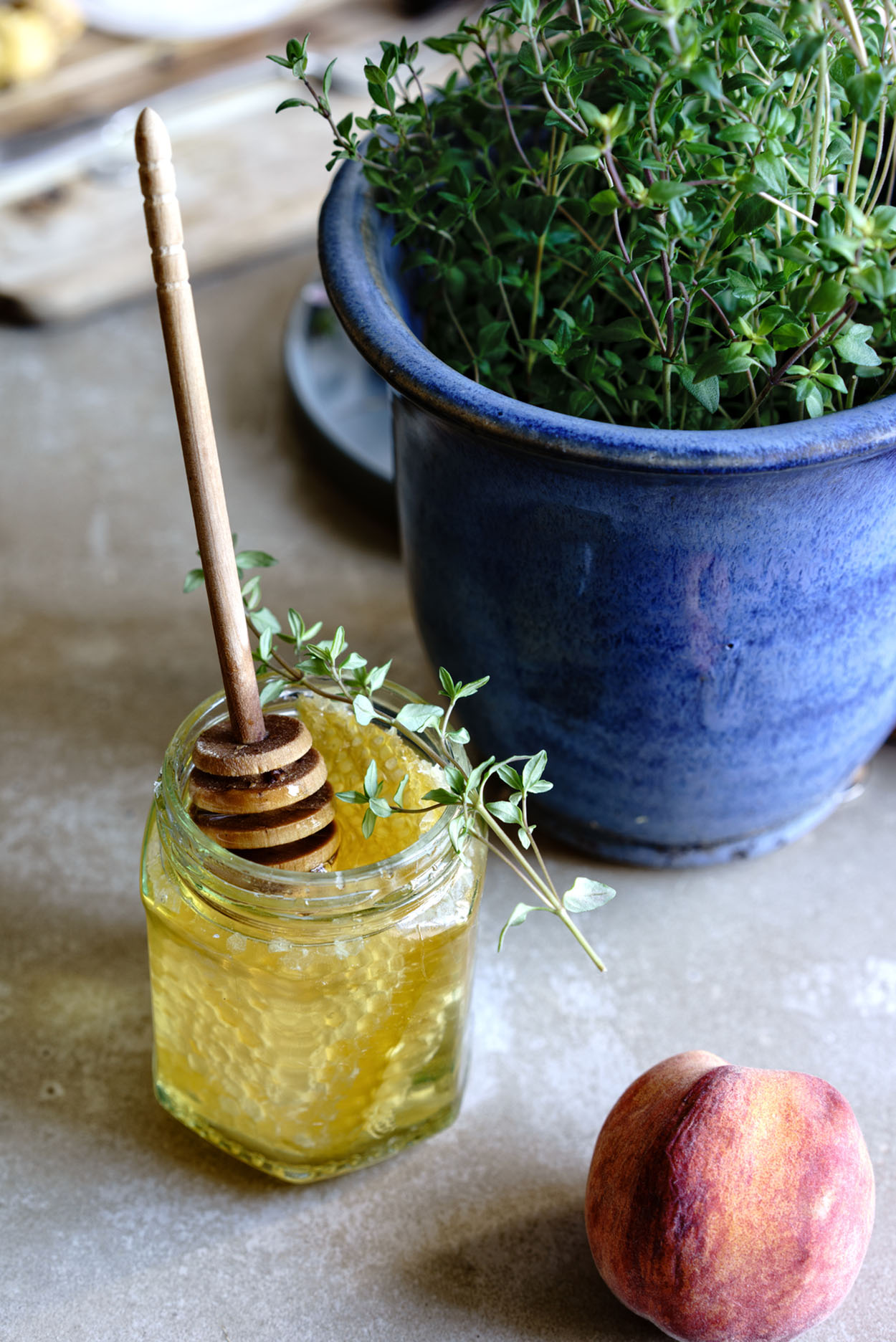
What does honey do for your skin?
Honey is a natural substance produced by bees from the nectar of flowers. It is a complex mix of sugars, enzymes, minerals, vitamins, and amino acids, which contribute to its numerous health and skincare benefits.
Honey is a potent moisturizer
This amber substance is an excellent natural humectant that attracts moisture and locks it into the skin. It helps keep skin hydrated, leaving it soft, supple, and radiant.
Honey mops up skin toxins
I mean this literally since the enzymes in raw honey soak up impurities from the skin’s pores, leaving them clean, clear, and clog-free.
Exfoliates away dead cells
Plus, honey contains natural enzymes that gently exfoliate the skin, helping to remove dead skin cells and promote cell turnover for a double whammy.
Soothing and anti-inflammatory
Honey boasts impressive anti-inflammatory properties that can help reduce redness, swelling, and irritation, relieving those suffering from inflammatory conditions (like eczema, psoriasis, and rosacea) or sensitive skin.
Honey heals EVERYTHING, including wounds and burns
Honey also heals cuts, burns, and wounds.
The science?
When this sticky-sweet ingredient comes in contact with fluids (including those that seep from a wound or sore), it produces hydrogen peroxide. This hydrogen peroxide is antibacterial and thwarts infection to speed up healing.
Moreover, studies have shown that honey aids in wound healing by encouraging the development of fresh tissue and reducing the appearance of scars.
Hence, applying a thin layer of raw honey to minor wounds can provide a natural, effective treatment that even doctors use!
Honey for acne
Hydrogen peroxide and other bioactive compounds in honey give it potent antibacterial properties that can help prevent and treat acne or other skin infections by inhibiting bacterial growth.
Combine this with the mop-up-toxins and slough-off-dead-cells bits, and you’ll understand why honey is an effective natural remedy for blemish-prone skin.
It also helps balance the skin’s pH and contains potent anti-inflammatory elements — you may never reach for another acne-buster.
PS: Raw honey never spoils, even out of the refrigerator, since bacteria can’t survive in it. Archaeologists have found raw honey in ancient Egyptian tombs that is still perfectly safe to eat!
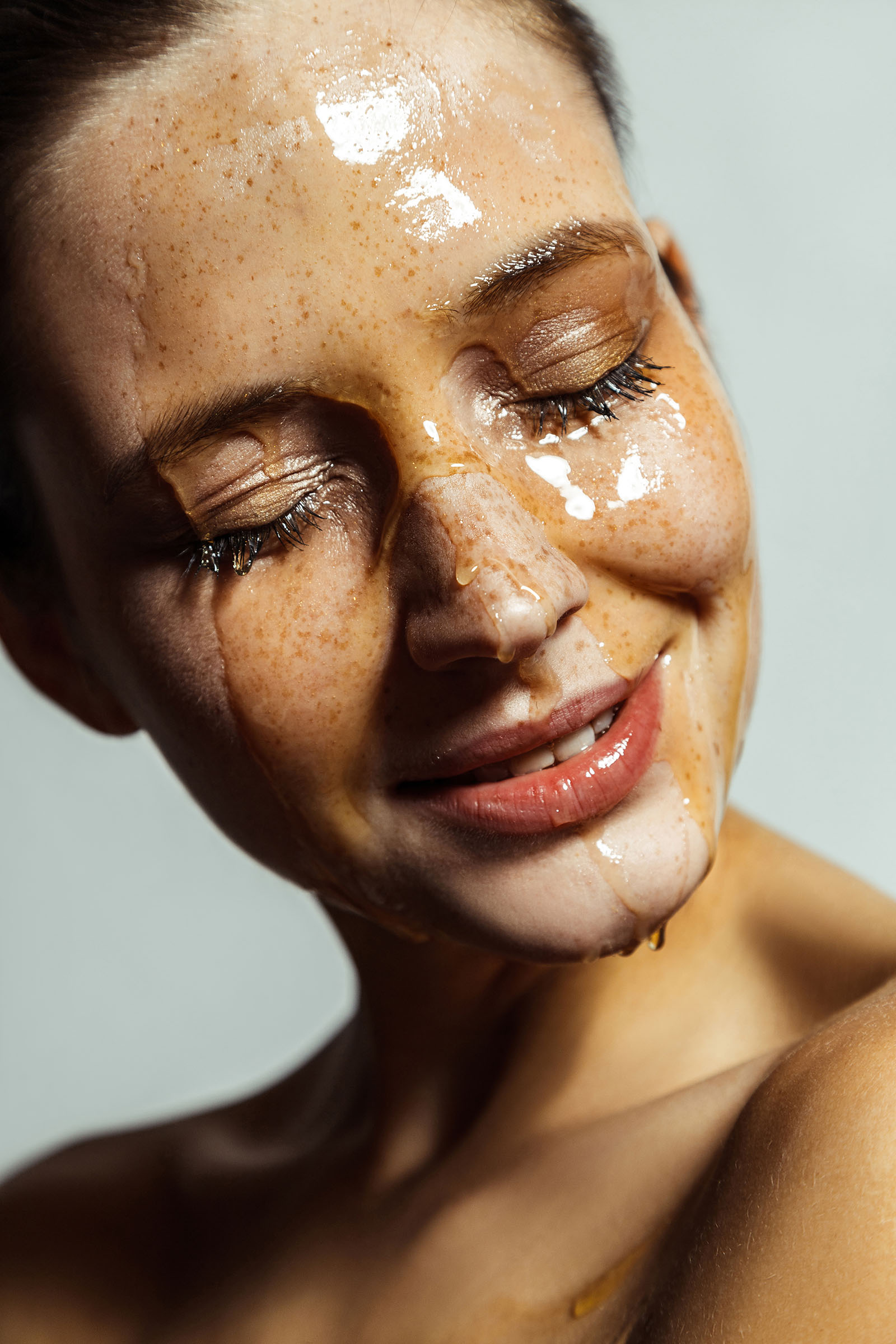
Honey helps lighten scars and deflate bumps
Not only will honey stop acne from worsening, but it also has natural brightening properties that help fade pre-existing scars and bumps.
Plus, it prevents the stringy kind of collagen that creates scar tissue.
In short: Regular use of honey-based skincare can lead to a more even and luminous complexion.
Honey prevents environmental skin damage
Our skin is exposed daily to environmental stressors like pollution and UV radiation. These create free radicals that can damage skin cells and lead to premature aging.
Honey is rich in antioxidants, including flavonoids and phenolic acids, which help protect the skin against this environmental damage and support its overall health.
Honey keeps skin smooth and supple
Did you know that honey contains methylglyoxal, an active ingredient that helps promote collagen growth? And healthy collagen means healthy, firm, youthful-looking skin — it all adds up.
Strengthens the skin barrier
The skin barrier is crucial in maintaining optimal hydration levels and protecting against external aggressors.
Honey can help reinforce the skin’s natural barrier function by providing essential nutrients and antioxidants. This allows the skin to retain moisture while defending itself against harmful elements.
Does it matter which types of honey I use for my skin?
Yes, it matters.
A lot.
In fact, the difference between raw honey and the highly processed department store version is the defining difference between good and bad skin.
The latter resembles high fructose corn syrup more than anything the bees have produced — and is more likely to increase acne and other infections.
That’s because many of honey’s benefits come from its enzymatic components. When it’s processed or pasteurized, most of these enzymes are destroyed.
So, to return to the question — is honey good for the skin? — the answer also includes what type of honey you are using.
Unfortunately, there aren’t any set standards for labeling honey. However, these are the loose guidelines followed by manufacturers.
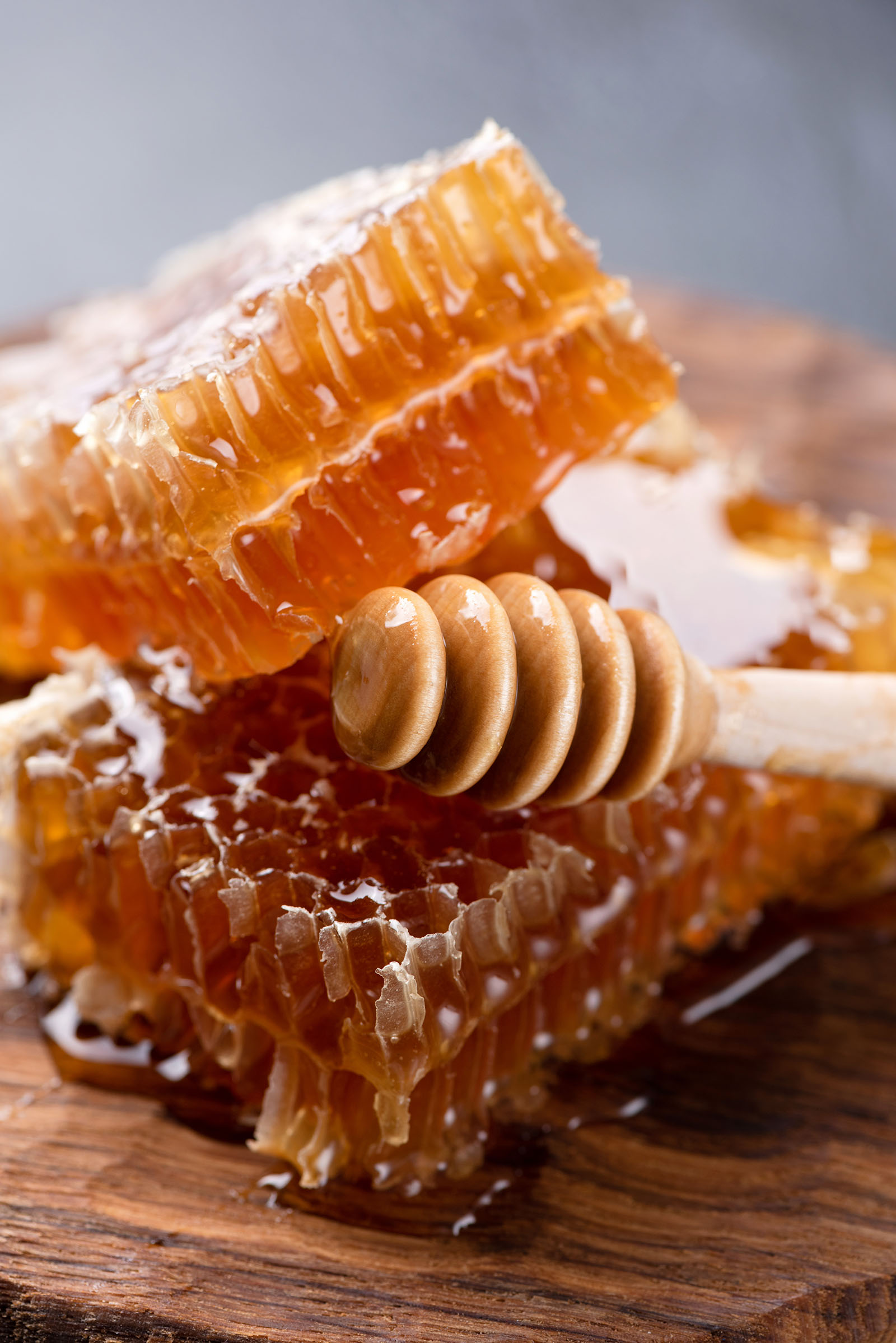
Completely raw honey
It appears chunky or crystallized, with wax, pollen, propolis, and honeycomb bits. Rather than being harmful, these are packed with the good stuff.
Unfiltered raw (or strained) honey
This is the most readily available kind of raw honey and the best for skin care. Processing is limited to simple filtering that removes the larger bits of wax and pollen so enzymes remain intact.
Filtered raw honey
This is your best bet if you can’t stand bits floating around in your honey. The honey is heated slightly and passed through a fine filter to remove all pollen and propolis, leaving a much cleaner liquid behind.
However, “cleaner” doesn’t mean “better” because it’s lower on the nutrition scale.
Pasteurized honey
Unfortunately, you’re most likely to get this variety of honey in a generic grocery store, as it’s inexpensive and doesn’t crystallize half as quickly.
It’s definitely not honey as the bees know it — after being heated to a very high temperature, processed, and packed with fillers like corn syrup.
PS: Since there is no mandate for companies to put the word “pasteurized” or “processed” on the bottle, just stay away from honey that isn’t labeled as “raw.”
Oh, and “pure” means nothing here!
What about the source of honey? Does it matter for the skincare benefits?
Next, take a good look at your source — you obviously don’t want a bottle that’s chock-full of antibiotics and pesticides. So, buying organic from small retailers or farmer’s markets is your best bet.
Then, of course, there’s the question of species and geography.
Honey can be named for the primary type of flowers the bees were feeding on — for example, acacia honey is made by bees feeding on acacia blossoms.
You can also find infused varietals, where something (like cinnamon) is combined with honey once the bees have finished their job.
However, Manuka honey is the ultimate choice for skin health with unrivaled benefits that are unmatched in the natural world.cIt can cost a pretty penny, but the results speak for themselves, and a bottle will last you ages.
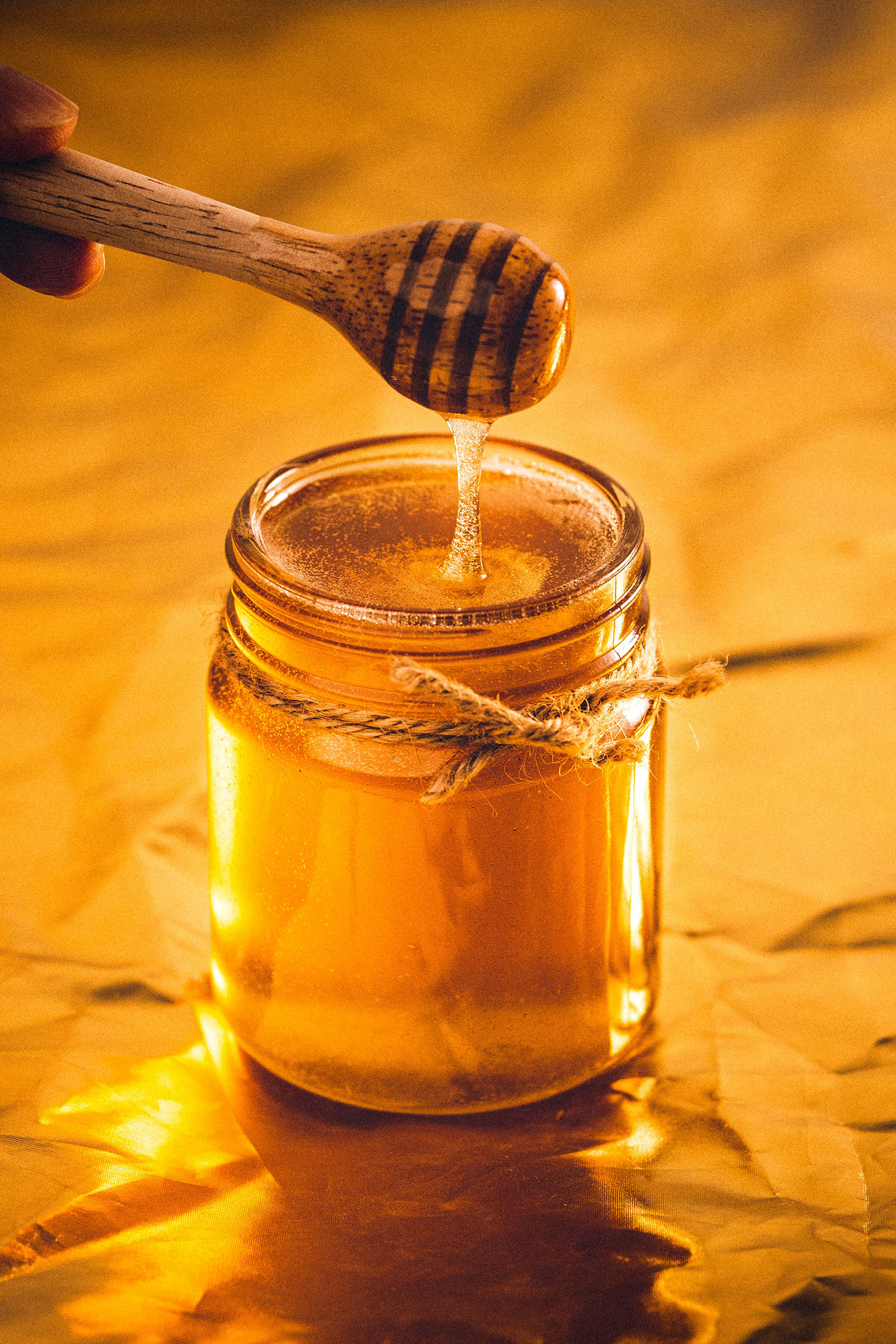
What’s so special about Manuka honey’s skin benefits?
Manuka honey is made by bees feeding on New Zealand’s manuka bushes (also known as tea tree plants) and has fantastic antibacterial properties.
This honey is thick, opaque, and has a caramel color. It has the highest concentrations of methylglyoxal, which is proven to destroy over 250 types of bacteria, including resistant strains.
However, given the high demand for Manuka honey, it’s often counterfeited. Here’s how to protect yourself.
A Manuka honey essential: Country of origin
Manuka honey NEVER comes from China. Or India. Or the USA. Or France.
Genuine manuka honey only comes from New Zealand. Manuka is a native Maori word for the Leptospermum scoparium tree, a unique species.
Some hold that manuka honey from southeastern Australia is also a good option. However, as this is still up for debate, I would personally stick to the OG New Zealand versions.
Unique Manuka Factor
Look beyond the manuka label — to be considered therapeutic, manuka honey needs a minimum rating of 10 UMF (Unique Manuka Factor, which indicates levels of antibacterial potency).
A UMF between 14 and 16 makes for the ideal Manuka honey skin benefits, while 20+ is used for surgical dressings.
What is the “Total Activity” of Manuka honey?
When purchasing manuka honey, look for brands with a UMF label instead of relying on the “total activity” categorization.
“Total activity” measures antioxidant activity that begins to degrade immediately after opening the bottle. UMF actually increases after opening the bottle.
For my money, here are the only three Manuka honey options I purchase for skincare (click to buy): New Zealand Honey Co. Raw Manuka Honey UMF 15+, Comvita Certified UMF 15+ Raw Manuka Honey, Steens Raw Manuka Honey UMF 15+
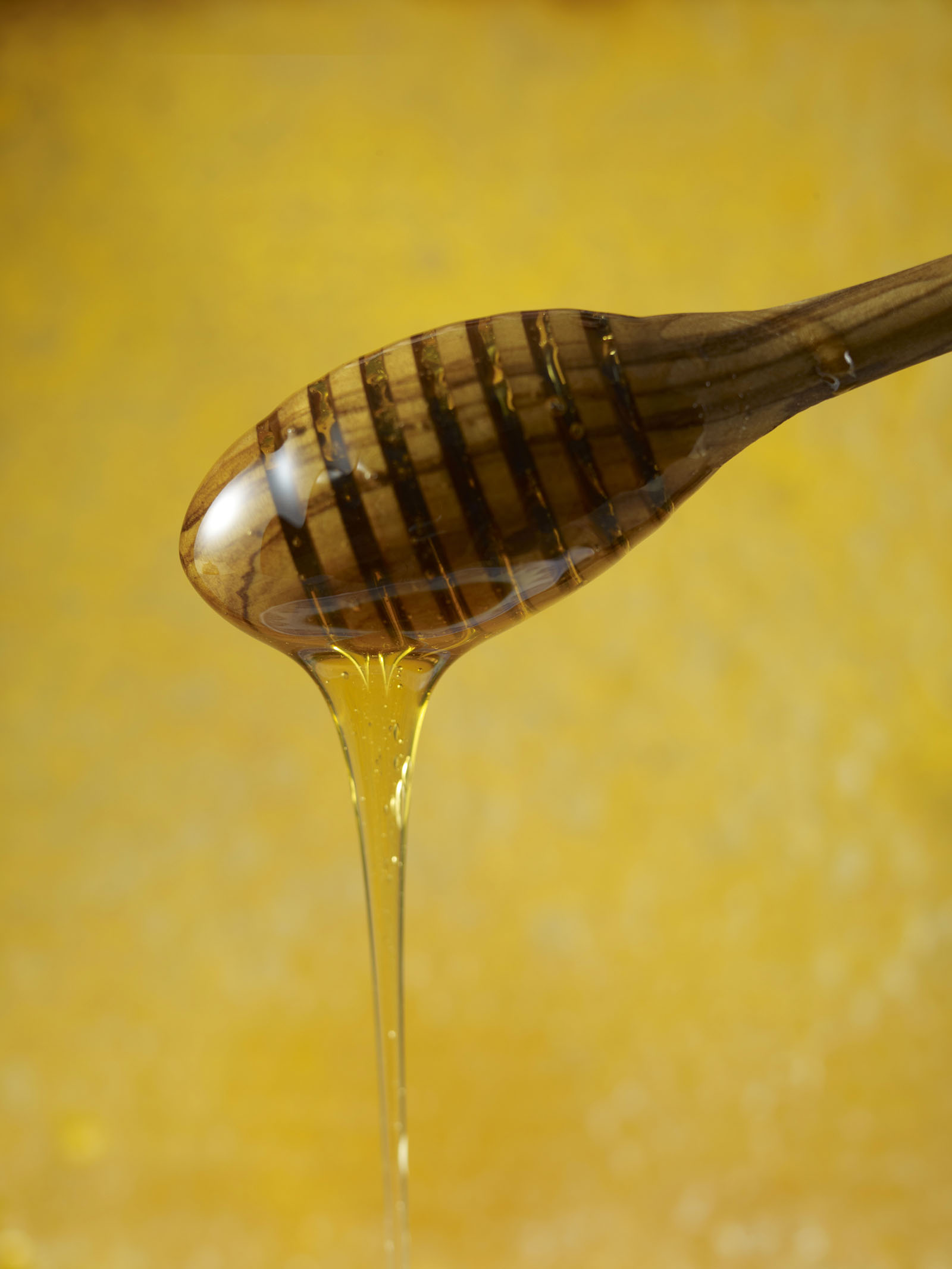
Beyond Manuka honey for skin
While Manuka honey has long been recognized as a powerhouse for skincare, it can be expensive and sometimes difficult to find.
Fortunately, there are some other honey varieties with fantastic skin benefits for your beauty routine.
Buckwheat honey
Buckwheat honey comes from the nectar of buckwheat flowers. It is typically darker in color than most other honey varieties.
With antioxidants and anti-inflammatory properties, buckwheat honey can help protect the skin from oxidative stress, reduce inflammation, and promote healing.
This makes it an excellent choice for acne-prone or sensitive skin. Its high mineral content also helps nourish and support skin health.
Top picks for buckwheat honey (click to buy): Zach & Zoe Sweet Bee Farm Unfiltered Raw Buckwheat Honey, Goshen Honey Amish Extremely Raw Carpathian Buckwheat Honey, PuroRaw Pure Unfiltered Buckwheat Honey
Acacia honey
Acacia honey is known for a high fructose content, which makes it a fantastic natural humectant that helps retain moisture in the skin.
Acacia honey can alleviate dryness, soothe irritation, and promote a healthy skin barrier by keeping the skin hydrated.
Its antibacterial properties can also help prevent and treat blemishes, making it suitable for all skin types.
Top picks for acacia honey (click to buy): Sanniti Fulmer All Natural Hungarian Acacia Honey, Savannah Bee Pure and Raw Acacia Honey
Neem honey
Neem honey is made by bees collecting nectar from neem tree flowers indigenous to India.
The neem plant has long been used in Ayurveda for its numerous health benefits, including anti-inflammatory, anti-fungal, and antibacterial properties.
These properties make neem honey particularly effective for soothing skin irritations, treating fungal infections, and healing acne-prone skin. It can also help soothe the symptoms of eczema and psoriasis.
Top pick for neem honey (click to buy): Heavenly Organics 100% Organic Raw Neem Honey
Eucalyptus honey
Eucalyptus honey originates from the nectar of eucalyptus trees, native to Australia. It’s rich in antioxidants and has antibacterial, antifungal, and anti-inflammatory properties.
This honey varietal can help protect the skin from environmental damage, alleviate redness and inflammation, and prevent and heal acne.
Furthermore, its distinct aroma makes it an excellent addition to DIY skincare products for a refreshing and invigorating experience.
Top picks for eucalyptus honey (click to buy): Apicoltura Casentinese Eucalyptus Organic Honey, Bee Harmony Eucalyptus Raw Organic Honey
Wildflower honey
Wildflower honey comes from various wildflowers, which gives it a unique composition. This type of honey is rich in vitamins, minerals, and antioxidants. These components can enhance the skin’s elasticity and combat free radicals responsible for early aging.
The natural enzymes in wildflower honey also gently exfoliate the skin, removing dead skin cells and revealing a brighter, smoother complexion.
Floral honey includes some of the plant’s properties, so if lavender works well for your skin, try lavender honey.
Top picks for wildflower honey (click to buy): Beekeeper’s Naturals Wildflower Honey, Bee Harmony American Raw Wildflower Honey, Local Hive Authentic Wildflower Raw & Unfiltered Honey
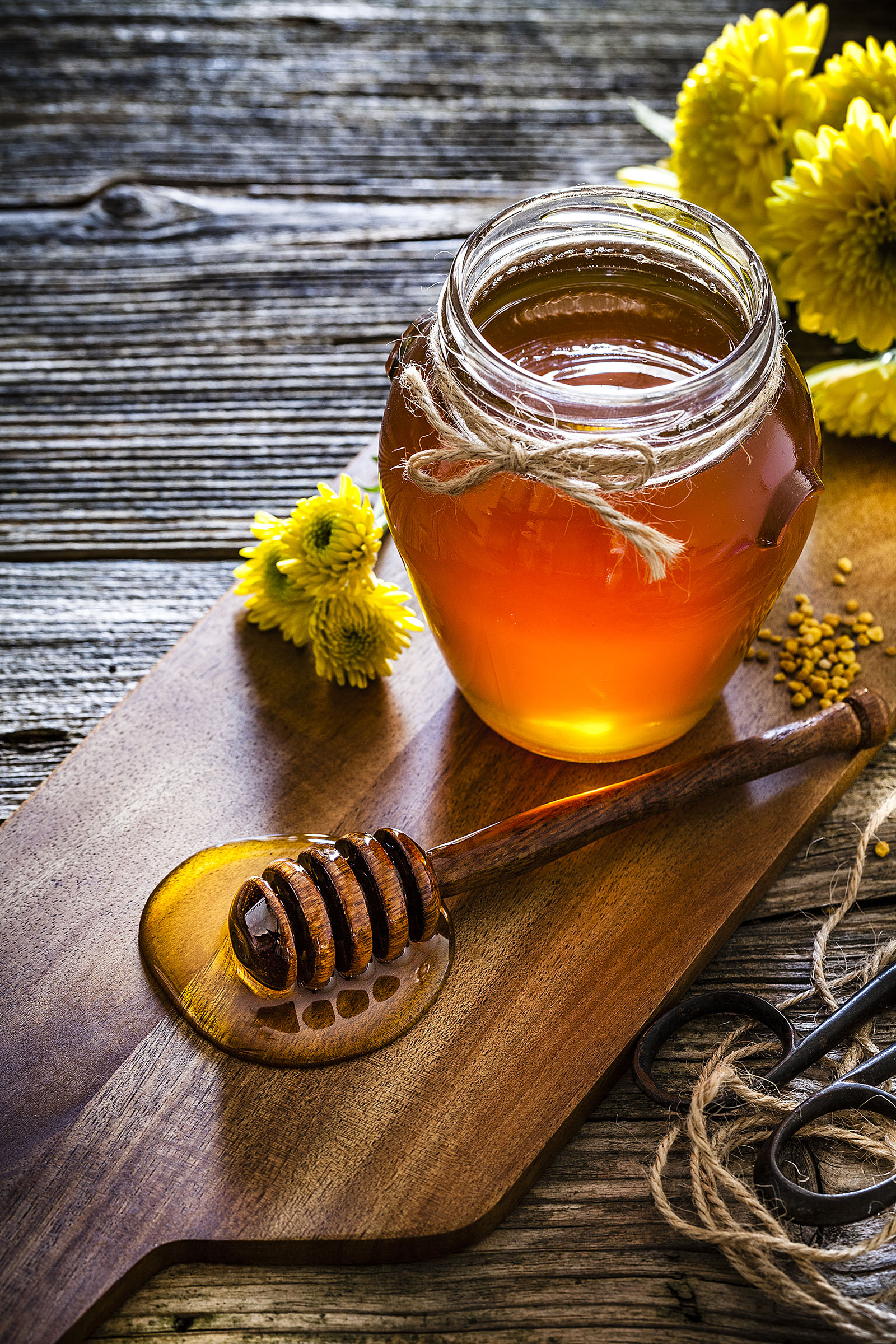
Finally, how to use honey in skincare? Aka DIY honey skincare solutions
Honey’s natural benefits make it a versatile addition to your skincare routine. With these simple DIY honey skincare solutions, you can nourish, cleanse, and heal your skin using only natural ingredients.
Honey as a face mask
It couldn’t be simpler:
- Wash your face with your regular cleanser and pat dry
- Spread a thin layer of honey over your entire face (and neck, if you don’t mind smudged clothes)
- Let it sit for half an hour, then rinse thoroughly with warm water
That’s it — just use a dollop every night as a face mask!
If it’s raw honey, you’ll be surprised how easily it emulsifies and slips off with just a bit of water, sans any stickiness or residue.
PS: Resist the impulse to chatter while slathered with honey because muscle movement will make it run.
Honey for acne treatment
When faced with a particularly nasty blemish, I often opt for a spot treatment using honey and cinnamon — it always works wonders.
Mix a tablespoon of honey with a teaspoon of cinnamon to create a paste. Apply this paste onto the affected area and leave it on for 10-15 minutes. Finally, rinse off with lukewarm water and pat your face dry.
Honey as a face wash
Honey is also supposed to be great as a facial cleanser for removing makeup, but I still haven’t warmed to this one — I’d rather let it sit on clean skin and do its thing instead.
If you do want to give it a go, apply the honey to your face using gentle, circular motions. Massage for a minute, then rinse with warm water and pat dry.
Honey for skin care: How to safely test for allergies
Even though honey is a natural ingredient, there is a slight chance you may have an allergic reaction to it — remember, even poison ivy is a natural plant!
If you are allergic to bee venom or pollen, it is crucial to ascertain your skin’s reaction to honey.
How to patch test for honey on the skin
The patch test is a standard method to check for allergies before using a new skincare product. Follow these steps to conduct a patch test with honey:
- Cleanse a small area of skin on the inside of your forearm
- Apply a small amount of honey to the clean area using a cotton swab
- Cover the honey-covered area with a bandage or hypoallergenic tape
- Leave the honey on your skin for 24 hours; avoid getting the area wet during this time
- After 24 hours, carefully remove the bandage and observe your skin for any signs of a reaction
- If any of these symptoms show up, you could be allergic to honey: redness, swelling, itching, a burning sensation, or the appearance of hives. In that case, don’t apply honey to your skin without consulting a dermatologist or allergist
- If your skin shows no signs of a reaction, you can safely incorporate honey into your skincare regimen.
Have you ever tried honey for your skin? How did it work out for you?
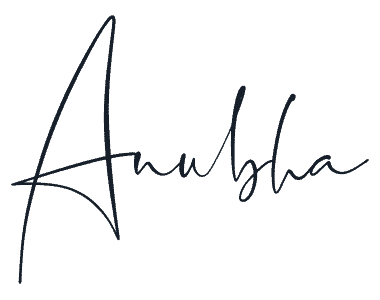
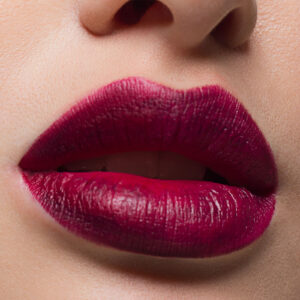

Priya Sharma says
To protects skin against environmental damage i will use honey from now onwards thanx for this blog. This blog is really very helpful for me.
Archita Singhal says
That’s a nice article!
Riya Agrawal says
Thanks for sharing this article, it’s extremely useful. I like how you have added detailed benefits of honey for beauty. I use True Elements Raw honey which is raw and 100% natural. Using your tips, I have started using that. Thank you!
Riya Agrawal says
Thanks for such an informative article, I use true elements raw honey as it’s 100% natural and unprocessed. Its really great you should also try!
Avatar Game says
Honey is really good. It has many benefits for human. I often drink it.
Zäune Doppelstab says
The practical tips and DIY recipes sprinkled throughout your article are a delightful bonus. It’s like you’ve handed us the keys to a DIY spa, inviting us to indulge in honey-infused self-care that’s as sweet for the skin as it is for the soul.
Thank you for sharing this golden treasure trove of beauty wisdom. Your blog is my go-to for all things beauty, and I can’t wait to incorporate more honey into my skincare routine!